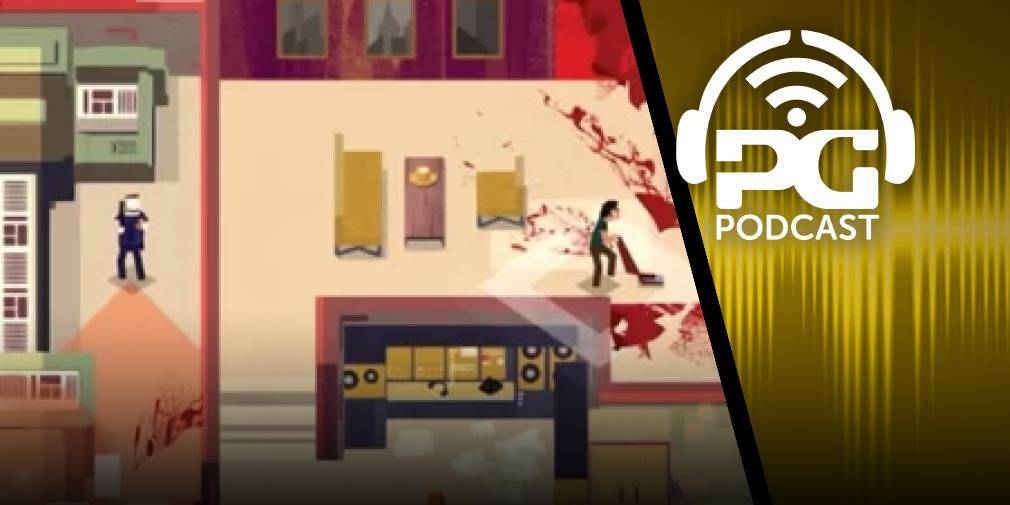Decoding The Pocket Gamer Podcast Episode 21: A Deep Dive into Niche Mobile Gaming
Popular Now
 Fall Guys
Fall Guys
 Minecraft
Minecraft
 Candy Crush Saga
Candy Crush Saga
 League of Legends
League of Legends
 Warframe
Warframe
 CarX Street
CarX Street
 Sonic the Hedgehog™ Classic
Sonic the Hedgehog™ Classic
 Free Fire Max
Free Fire Max
 God of War Ragnarök
God of War Ragnarök
 Rust
Rust 
The Pocket Gamer Podcast Episode 21, subtitled “Two-Player Special, Serial Cleaner, Static Simulators and Goths”, is a focused exploration of distinctive and emerging trends in the mobile gaming world. Released on February 18, 2025, this episode featured a special two-player format with hosts Cat and Will, who leveraged the reduced panel to delve into more niche, yet compelling, aspects of game development and player culture.
The episode’s structure provided a strong mix of specific game reviews, genre analysis, and commentary on the cultural intersection of gaming, making it highly relevant to discussions around indie games, simulation game monetization, and community engagement.
“Two-Player Special” and Recent Releases Spotlight
The “Two-Player Special” format, necessitated by the absence of hosts Dann and Iwan, allowed for a more intimate and in-depth discussion between Cat and Will. This setup often lends itself to more personal and critical reviews of recently released mobile games, making the episode an important resource for developers tracking immediate market reception and user acquisition data for new titles. The primary focus of the duo was to provide detailed, hands-on commentary on games that may not receive the same attention as AAA mobile titles, thus providing high-value insight for the indie gaming market.
The discussion covers a variety of news and new launches, providing a snapshot of the mobile gaming trends dominant in early 2025.
The Clean-Up Crew: Serial Cleaner Review
A significant portion of the episode is dedicated to the stealth-action game Serial Cleaner. The hosts review the mobile version, analyzing how its unique game mechanics—playing as a professional crime scene cleaner trying to avoid detection—translate to the touch screen interface. This discussion is valuable for game designers and UI/UX experts looking at the challenges of porting console/PC experiences to mobile.
- Stealth Mechanics on Mobile: The hosts likely discussed the effectiveness of the controls, the challenges of spatial awareness on a smaller screen, and how the game’s level design had to be adapted for a mobile audience.
- Monetization Model: For investors and analysts, the review would touch on whether the game followed a premium, one-time purchase model or if it attempted to integrate free-to-play elements, a crucial factor in the mobile revenue stream landscape.
- Value Proposition: Serial Cleaner’s success on mobile is a case study in how strong high-concept games can cut through the noise of the highly saturated App Store market.
The Appeal of “Static Simulators”
The episode provided a thoughtful analysis of “Static Simulators”, a term likely used to categorize a growing trend of specialized simulation games that focus on seemingly mundane or routine tasks, often involving minimal movement or intense action. This niche genre is a fascinating counterpoint to the adrenaline-pumping nature of Battle Royale or hyper-casual games, yet they demonstrate surprising commercial success and high player retention.
Examples of games discussed might include titles focused on activities such as:
- PowerWash Simulator: Focusing on cleaning mechanics.
- PC Building Simulator: Involving intricate, detail-oriented construction.
- Farming Simulators: Centering on slow-paced resource management.
The hosts explore the psychological appeal of these games—the comfort of repetition, the satisfaction of completion, and the low-stress environment—which drives consistent microtransaction revenue and provides a reliable long-tail revenue stream for developers. The success of Static Simulators is a testament to the diversity of the mobile gamer demographic.
Goths in Gaming: Community and Culture
The segment on “Goths” likely shifts the focus from game mechanics to gaming culture and player communities. This discussion would involve the representation of the Gothic aesthetic and subculture within games, or the community surrounding specific titles that appeal to this demographic. Topics could range from the use of dark, high-fantasy aesthetics in mobile RPGs to an analysis of communities that form around games like The Sims Mobile or other lifestyle simulation games that allow for deep character customization.
This discussion underscores the importance of cultural relevance and niche marketing in a mature industry. Understanding subcultures, like Goths, and their preferences for specific art styles, narratives, or customization options allows developers to create highly targeted and engaged player communities—a key factor in achieving high Lifetime Value (LTV) in mobile gaming.
The presence of a full episode breakdown on the Pocket Gamer Podcast is indicative of the show’s focus on providing a thorough look at the business and culture surrounding mobile games. This information is useful for listeners seeking to understand the mechanics of new titles and the strategic reasons behind mobile game design choices.







